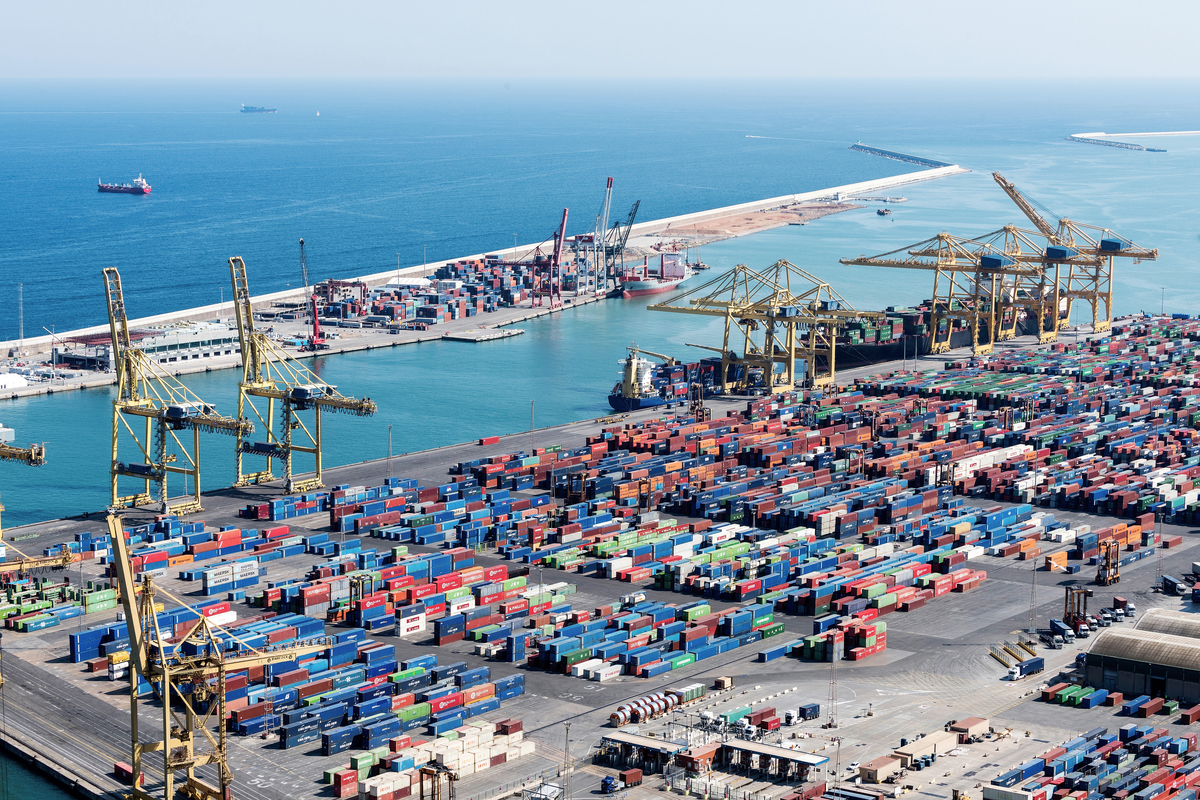Germany to join Europe’s first green hydrogen corridor
An underwater pipeline that will transport up to 2 million mt/year of hydrogen between Spain’s Barcelona in Spain and France’s Marseille will be extended to Germany.
 PHOTO: Aerial view of Spain’s Port of Barcelona, with containers, gantry cranes and cargo ships. Getty Images
PHOTO: Aerial view of Spain’s Port of Barcelona, with containers, gantry cranes and cargo ships. Getty Images
The project, dubbed H2Med, is part of a green energy corridor that will connect Spain, Portugal, France, and Germany to the EU's energy network.
A joint statement issued by France and Germany on the 60th anniversary of the Élysée Treaty confirms that the two nations will develop a roadmap for large-scale hydrogen production and establish a European hydrogen market.
France and Germany have established a joint working group for the hydrogen project. The working group will prepare and submit recommendations by the end of April 2023.
The statement adds that the France and Germany “will also ensure that both renewable and low carbon hydrogen can be taken into account in European decarbonisation objectives, while acknowledging their differences and safeguarding the overall ambition level of the renewable target.”
As the EU moves towards a renewable energy infrastructure, it is increasingly looking to source renewable and low-carbon hydrogen to reduce its reliance on Russian fossil fuels. As part of its REPowerEU hydrogen roadmap, the EU aims to produce 10 million mt/year and import another 10 million mt/year of renewable hydrogen by 2030.
Individual nations are also working to meet the continent's hydrogen demands. The French government has set 400,000 mt/year as a target for low-carbon hydrogen production by 2028, while Germany’s national hydrogen strategy expects clean hydrogen demand to reach approximately 3 million mt/year by 2030, and up to 11 million mt/year by 2050. Rotterdam in the Netherlands aims to import and produce 4.6 million mt/year of green hydrogen to supply northwest Europe by 2030.
In an effort to accelerate Germany's hydrogen economy, Yara International announced earlier this month that it will increase the ammonia import capacity at its German terminals to 3 million mt/year, which is approximately 530,000 mt/year of hydrogen. Ammonia can be a cost- and space-efficient way of transporting and storing hydrogen.
By Konica Bhatt
Please get in touch with comments or additional info to news@engine.online






